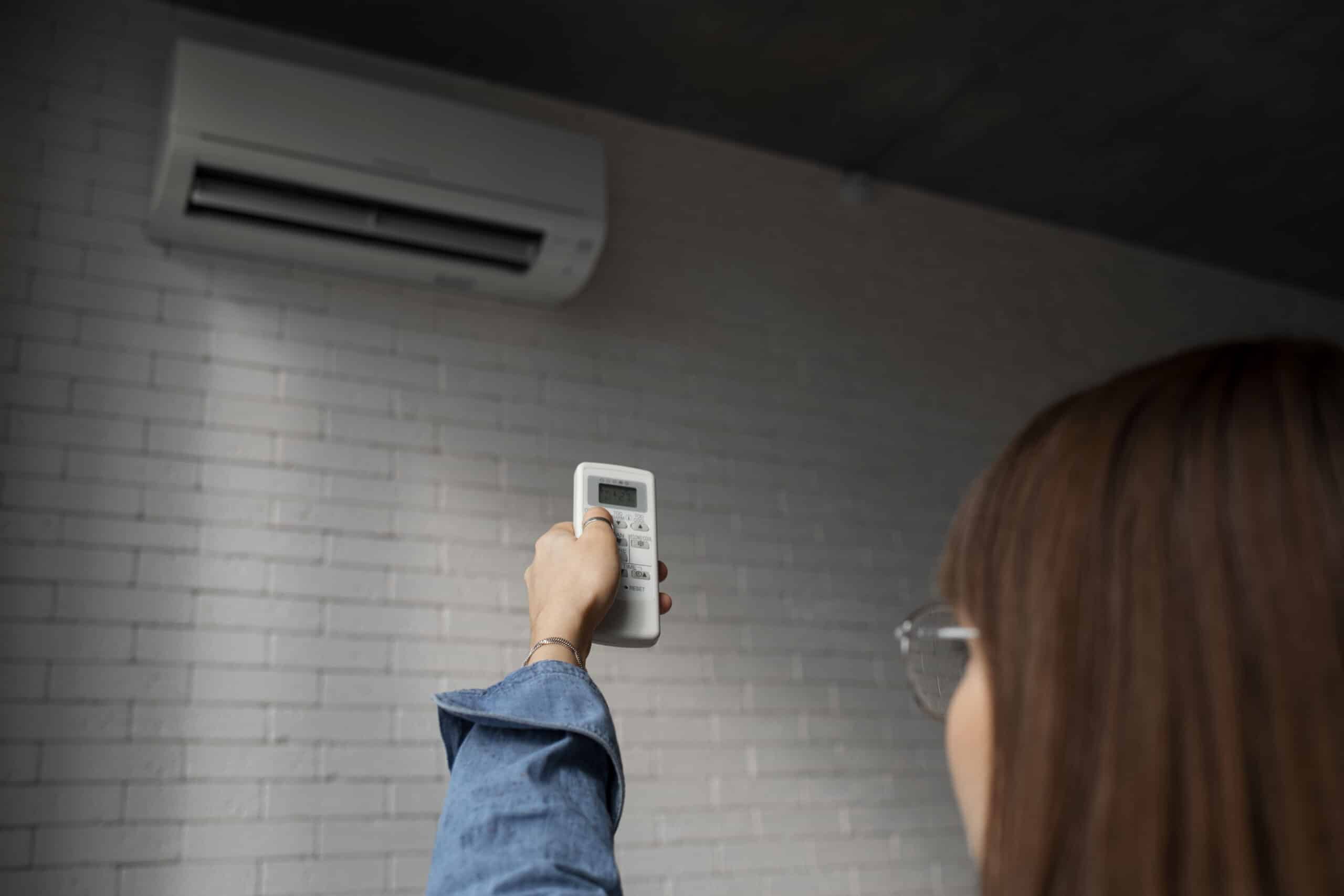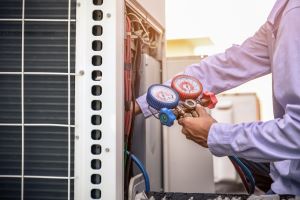Keep Your Home Ideal Year-Round with DMAKS HVAC Solutions.
Keep Your Home Ideal Year-Round with DMAKS HVAC Solutions.
Blog Article
How to Choose the Right A/c System for Your Requirements
Choosing the ideal HVAC system is a crucial choice that needs mindful consideration of numerous aspects. The myriad of system types available can complicate this process, leading one to question which course inevitably leads to optimal comfort and efficiency.
Examine Your Home Dimension
Analyzing your home size is an essential initial step in choosing the appropriate heating and cooling system. The dimension of your home straight affects the heating & cooling capability required for efficient climate control. A heating and cooling system that is as well small will certainly battle to maintain comfortable temperatures, causing raised energy consumption and wear on the device. Alternatively, an extra-large system can cause short cycling, poor humidity control, and inefficient procedure.
To properly assess your home size, measure the square video of each room, taking into consideration aspects such as ceiling elevation and the layout. Additionally, think about the insulation top quality and the number of windows, as these components influence thermal efficiency. Houses with open floor plans may call for various system setups compared to those with numerous divided spaces.
Using the Guidebook J lots estimation technique can offer a more specific price quote of your heating and cooling needs. This technique accounts for numerous elements, including regional environment, solar gain, and occupancy patterns. By carefully evaluating these elements, you can make certain that your picked a/c system is suitably sized, causing boosted comfort, energy efficiency, and durability of the equipment.
Determine Your Budget Plan
Establishing your budget plan is a pivotal action in the a/c system selection process, as it establishes the specifications for your alternatives - DMAKS HVAC. A heating and cooling system is a considerable financial investment, and understanding your economic limitations will certainly help narrow down selections that fit within your ways
Begin by analyzing not only the first acquisition rate however additionally setup expenses, which can differ significantly depending on the complexity of the project. Take into consideration recurring expenses such as upkeep, repair services, and energy usage. A system may show up economical initially however can cause greater prices with time if it is less reliable.
It is advisable to assign a backup fund for unforeseen expenses that might develop throughout installation or initial system modifications (DMAKS HVAC). Furthermore, check out financing options or discounts that may be offered, as these can relieve the problem of upfront expenses
Inevitably, having a clear spending plan allows you to engage with HVAC experts better, ensuring you receive tailored advice that aligns with your financial objectives and home requirements. By being thorough about your spending plan, you can make informed choices that improve comfort without compromising monetary security.
Evaluate Energy Efficiency
Energy performance plays an important role in the overall performance and cost-effectiveness of your HVAC system. Look for systems with a high Seasonal Power Effectiveness Ratio (SEER) for cooling down and a high Yearly Gas Application Efficiency (AFUE) score for home heating.
Furthermore, take into consideration the Energy Celebrity certification, which indicates that the system satisfies stringent performance standards set by the Environmental Security Firm. Purchasing an Energy Star-rated cooling and heating system can result in substantial financial savings gradually, particularly in locations with severe temperature fluctuations.
Another factor to review is the system's dimension and capacity. A large or small system can cause inefficiency and enhanced energy costs. DMAKS HVAC. Appropriate sizing, commonly identified with a Manual J load computation, makes sure that the system operates at ideal effectiveness


Consider Environment and Environment
When choosing an a/c system, it is essential to consider the local climate and ecological problems, as these factors dramatically influence the system's performance and effectiveness. Various areas experience varying temperature level extremes, moisture levels, and seasonal adjustments, all of which impact heating and cooling demands.

Furthermore, local environmental variables, such as air high quality and potential irritants, should notify browse around this site your choice. Solutions geared up with sophisticated filtration innovations can help reduce toxins and supply cleaner air. Additionally, consider the energy resources available in your area-- some cooling and heating systems are more effective when powered by natural gas or renewable resource resources.
Inevitably, straightening your HVAC system selection with your regional climate and environmental factors to consider will cause enhanced convenience, boosted performance, and reduced energy expenses.
Explore System Kind and Functions
As home owners seek to maximize convenience and effectiveness, checking out the various types of HVAC systems and their distinct features becomes important. The main types of a/c systems include air conditioning, warmth pumps, ductless mini-split systems, and heaters. Each system supplies unique advantages tailored to various requirements and preferences.
Central air systems provide uniform cooling throughout a home, making them suitable for bigger areas. Heatpump serve as both home heating and cooling down remedies, making use of electricity to transfer heat, which can result in reduced energy prices. Ductless mini-split systems are coming to be increasingly popular as a result of their versatility and convenience of installment, enabling property owners to regulate the temperature in individual spaces without comprehensive ductwork.

Verdict
Finally, selecting the appropriate cooling and heating system demands cautious factor to consider of numerous aspects, including home size, budget restrictions, power effectiveness, local environment, and available system types. A thorough assessment of these elements ensures optimum comfort and cost-effectiveness. By complying with a structured strategy, house owners can make educated choices that straighten with their certain requirements and preferences, eventually leading to enhanced indoor air quality and energy savings.
Report this page